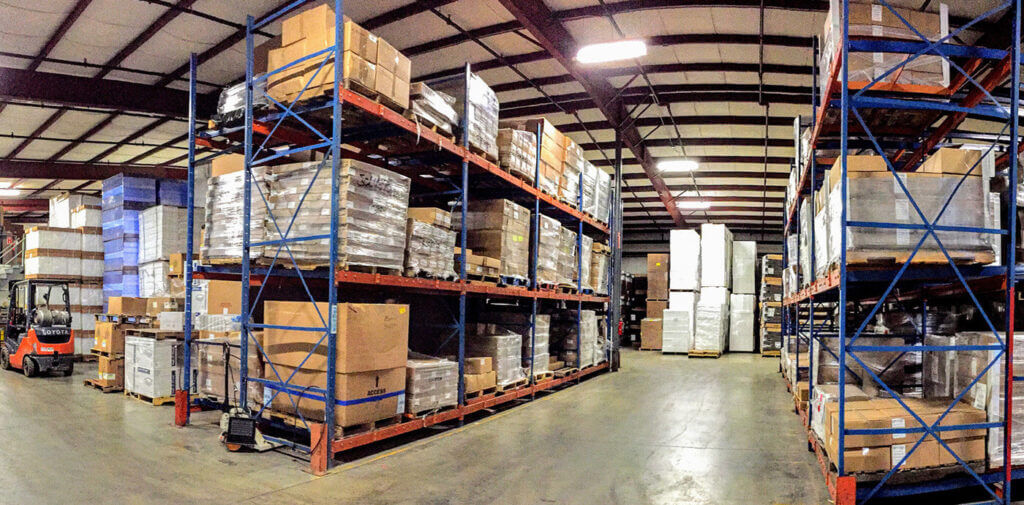What You Need to Know to Optimize Your Amazon Business
As Amazon FBA sellers grow, many turn to third-party logistics (3PL) providers to simplify operations and reduce logistical issues. As such, FBA seller requirements for 3PL is a must know when shopping for new warehouse partners. Knowing your requirements for a 3PL partner is key for smooth integration. Here’s what FBA sellers need to keep in mind when picking a 3PL partner.
FBA Seller Requirements for 3PLs – Knowing Amazon Guidelines
One of the key FBA Seller Requirements for 3PLs is working with a logistics provider that thoroughly understands Amazon’s FBA guidelines. These include specific rules for packaging, labeling, and shipping. A 3PL that isn’t familiar with these requirements can cause delays, failed shipments, or penalties from Amazon, which can negatively affect your business’s performance.

Warehouse Proximity to Amazon Fulfillment Centers
Speed and cost-efficiency are crucial FBA Seller Requirements for 3PLs. FBA sellers need 3PL providers with warehouses strategically located near Amazon fulfillment centers to ensure fast stock replenishment. This reduces shipping times, helps meet Amazon’s delivery expectations, and minimizes transit time, which lowers shipping costs and improves your bottom line.
FBA Seller Requirements for 3PLs – WMS & Inventory Software
Advanced inventory management technology is a key FBA Seller Requirement for 3PLs. Your 3PL should offer real-time tracking, automated inventory updates, and seamless integration with Amazon’s systems to maintain accurate stock management, avoiding stockouts or overstocking that can harm your seller ranking. The system should also support automated replenishment requests to FBA centers, synchronization with Seller Central, and inventory tracking across multiple sales channels.

Compliance with Amazon’s Shipping and Labeling Standards
Make sure your warehouse partner follows Amazon’s strict rules for labeling, packaging, and shipping timelines. Failure to follow these standards, like incorrect labeling or delayed shipments, can lead to extra fees, delays, or even shipment rejections. Your 3PL should ensure correct label placement, approved packaging materials, and adherence to Amazon’s schedules to avoid costly penalties.
Flexible and Scalable Services
FBA Seller Requirements for 3PLs include flexible and scalable services, especially during peak seasons like Q4. Your 3PL must provide adaptable storage, labor, and fulfillment to handle seasonal spikes and sudden growth. They should efficiently manage increased demand while offering flexible pricing that matches your volume needs.

Cost Transparency and Avoiding Hidden Fees
FBA Seller Requirements for 3PLs emphasize cost transparency. Choose a 3PL that clearly outlines fees and avoids hidden costs like storage charges, prep fees, and shipping surcharges. Always request a detailed cost breakdown to prevent unexpected expenses that could reduce your profits.
FBA Seller Requirements for 3PL –Returns Management
FBA Seller Requirements for 3PLs include choosing a provider familiar with Amazon’s guidelines, offering flexible and scalable services, advanced inventory management, and cost transparency. Your 3PL must handle seasonal demand spikes, integrate seamlessly with Amazon’s systems, and comply with strict labeling, packaging, and shipping standards to prevent delays and penalties. Clear communication about fees, including storage, prep, and shipping, is essential to safeguard profits and streamline operations.
Conclusion
Your 3PL should understand Amazon’s strict guidelines, leverage advanced inventory management technology, and ensure quick, accurate shipments. Additionally, efficient handling of returns is critical to maintaining smooth operations and customer satisfaction. A reliable 3PL acts as a true extension of your business, helping to prevent costly errors and delays.
By selecting a 3PL that aligns with these requirements, FBA sellers can streamline their supply chain, reduce operational costs, and ensure compliance with Amazon’s standards. This allows sellers to focus on scaling their business, enhancing efficiency, and delivering an exceptional customer experience, all while avoiding common pitfalls like stockouts, penalties, or hidden fees.


